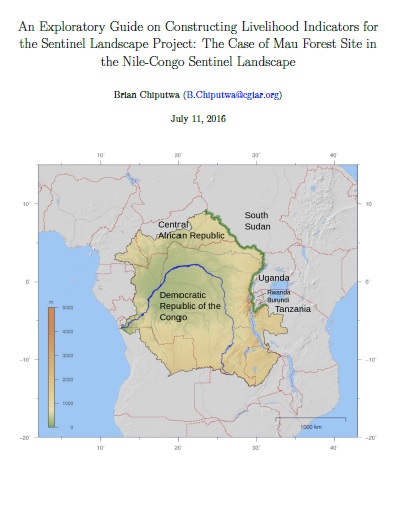Issues around bundling of climate smart agriculture (CSA) and climate information services (CIS) have been kept relatively distinct whereas in reality, they are more impactful when integrated. Using the case of the Accelerating Impacts of CGIAR Climate Change Research in Africa (AICCRA) Project that emphasizes bundling as a critical component of research in development, six regions of Ghana were purposively selected based on the identified value chain crops for implementation. 120 respondents including practicing farmers and advisors as reference, rated contributions of 21 innovations to 25 climate smartness indicators. These include gender, youth and social inclusion (GSI), enabling environment (EE), ability to enhance soil, water, crop and animal health (One-Health Achievement) (OHA), end-user friendliness (EUF) and climate smart agriculture (CS) for prioritization, bundling and ultimately to construct a Climate Smart Readiness Index (CSRI). There was a high level of concordance between the ratings of farmers and advisors on the Climate Smartness; moderate concordance on OHA and a lower concordance on GSI. The CS and EUF had a significant and same agreement among farmers while EE had a substantial same agreement among advisors. These elements (CS, GSI, OHA, EUF, EE) formed an integral part of the CSRI construct confirmed by the Fornell-Larcker and the Heterotrait-Monotrait criteria. While OHA was the fundamental factor in determining CSRI for farmers, EE was considered more important by the advisors. CSRI informs policy makers and agricultural practitioners on appropriate bundling of CSA and CIS practices to generate evidence for farmer preparedness in the context of resilience, productivity, adaptation, and mitigation.
DOI:
https://doi.org/10.1016/j.cliser.2024.100453
Dimensions Nombre de citations:



















